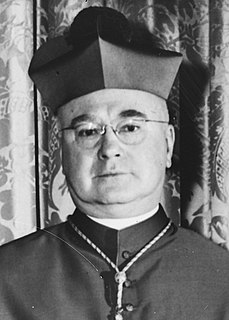A Quote by Bill Moyers
The things I really cared about - poverty, the Great Society, civil rights - were all being drained away by the Vietnam War. The line that keeps running through my mind is the line I never spoke: "I can't speak for a war that I believe is immoral."
Related Quotes
Most of us who were opposed to the war, especially in the early '60's - the war we were opposed to was the war on South Vietnam which destroyed South Vietnam's rural society. The South was devastated. But now anyone who opposed this atrocity is regarded as having defended North Vietnam. And that's part of the effort to present the war as if it were a war between South Vietnam and North Vietnam with the United States helping the South. Of course it's fabrication. But it's "official truth" now.
A moment comes in war when the last line must be crossed. The line that separates what you hold dear from what total war demands. If he couldn't cross that line, the battle was over, and he was lost. His heart, the war. Her face, the battlefield. With a cry only he could hear, the hunter turned. And ran.
History of America, Part I (1776-1966): Declaration of Independence, Constitutional Convention, Louisiana Purchase, Civil War, Reconstruction, World War I, Great Depression, New Deal, World War II, TV, Cold war, civil-rights movement, Vietnam. History of America, Part II (1967-present): the Super Bowl era. The Super Bowl has become Main Street’s Mardi Gras.
The civil rights movement didn't deal with the issue of political disenfranchisement in the Northern cities. It didn't deal with the issues that were happening in places like Detroit, where there was a deep process of deindustrialization going on. So you have this response of angry young people, with a war going on in Vietnam, a poverty program that was insufficient, and police brutality. All these things gave rise to the black power movement. The black power movement was not a separation from the civil rights movement, but a continuation of this whole process of democratization.
I was after a set of pictures, so that when people looked at them they would say, ‘This is war’-that the people who were in the war would believe that I had truthfully captured what they had gone through I worked in the framework that war is horrible. I want to carry on what I have tried to do in these pictures. War is a concentrated unit in the world and these things are clearly and cleanly seen. Things like race prejudice, poverty, hatred and bigotry are sprawling things in civilian life, and not so easy to define as war.
A great many of the epic fantasies, from The Lord of the Rings onward, are about war, but to my mind, a lot of it doesn't really deal honestly with the consequences of war, what war does to us, as a society, what war does to us, as individuals, and the struggle for power, in the same way, and what we're fighting for.
Of course, you have politics, the Vietnam war and all that monkey business. There are all kinds of reasons. At every one of those demonstrations in the late Sixties about the Vietnam war, you could guarantee there'd be a series of speeches. The ostensible purpose was to protest the war. But then somebody came up and gave a black power speech, usually Black Muslims, then. And then you'd have a women's rights speech. It was terrible to listen to these things.
I worry that I may have overstated the impact of Civil War on the utopians. By the time the Civil War comes, most of the communities were quite separated from the wider American society. Their rhetoric is still about transforming the world, but they're not having that much traffic with their neighbors.

































